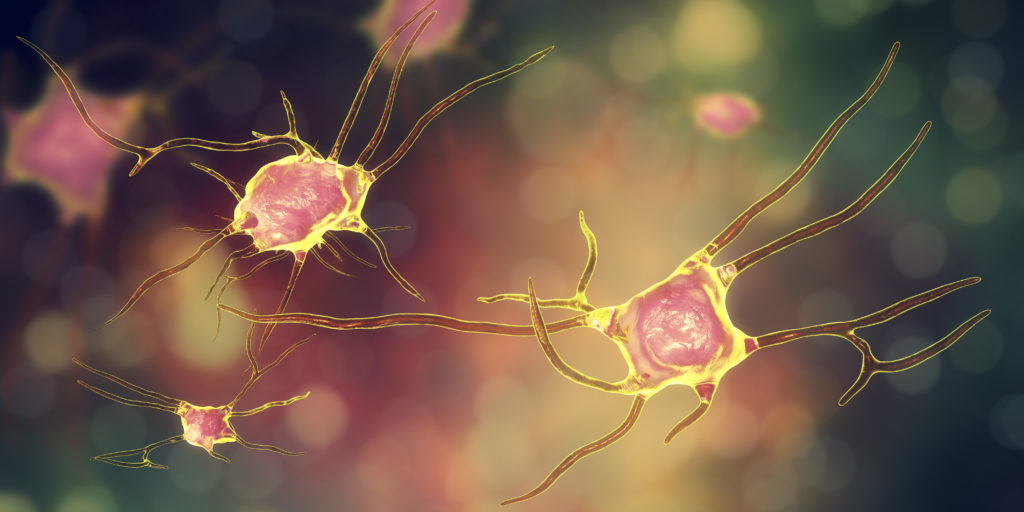Quick Hits
Daily brief research updates from the cognitive sciences

Always nice to know that you brain can grow – and it is still met with surprise when I explain how this can happen to audiences when speaking in public. But this recent research gives some fascinating insights into a new mechanism of growth in the brain.
Researchers around Terry Dean of the Children’s National Hospital in the USA have found a mechanism that is controlled by daily rhythms and this could lead to new insight and more effective methods to help recovery after brain injury.
Your brain cells, neurons are pretty fixed with new generation of cells only in very limited areas in the brain. However, they can rebuild and strengthen connections. There are also group of cells called micro glia or glial cells and these are considered the brains “helping” cells – they are also essential to healthy brain functioning performing many critical functions.
One of these goes under the technical name of NG2-glia, or “oligodendrocyte precursor”, sorry I know that won’t help you (in short, it’s one of the brain’s helping cells). Anyhow these are one of the few cells in the brain that can continuously regenerate. And what the researchers found is that these follow daily rhythms with proliferation of these cells coinciding with the highest levels of a factor known as Bmal-1RNA. This is a protein that helps the body clock stay in rhythm and is highest when we should be most active – during the day.
What is interesting is that this can help us guide recovery better by taking into account times of day during treatment – we also know that traumatic brain injury (TBI) can disrupt daily rhythms which could explain some of the negative effects.
Also, of interest is that we would probably assume that much healing would take place as night – but this shows not so in this particular case.
This highlights once more the importance of daily rhythms in just about everything!

Andy Habermacher
Andy is author of leading brains Review, Neuroleadership, and multiple other books. He has been intensively involved in writing and research into neuroleadership and is considered one of Europe’s leading experts. He is also a well-known public speaker, speaking on the brain and human behaviour.
Andy is also a masters athlete (middle distance running) and competes regularly at international competitions (and holds a few national records in his age category).
References
Terry Dean, Aissia Victoria Koffi, Evan Goldstein, Javid Ghaemmaghami, Vittorio Gallo.
Endogenous circadian clock machinery in cortical NG2-glia regulates cellular proliferation.
eneuro, 2022
DOI: 10.1523/ENEURO.0110-22.2022
More Quick Hits
Want to Live Longer? Be Optimistic!
Quick HitsDaily brief research updates from the cognitive sciences e probably all know some people who are particularly pessimistic - always putting a negative side to things and expecting the worst outcomes. We probably also know some people who...
How Having Had COVID-19 Negatively Impacts Performance at Work
Quick HitsDaily brief research updates from the cognitive sciences ’m sure we’re all aware of the various negative aspects of having contracted COVID-19 such as long COVID but also the brain fog that seems to have been a feature that many people...
Narcissistic Leaders Block Knowledge Flow and Cooperation
Quick HitsDaily brief research updates from the cognitive sciences arcissism is considered one of the three dark-triad traits and something that has been reported as being common in senior leaders. The important question is can and does this hinder...
The Science of Exposing Liars
Quick HitsDaily brief research updates from the cognitive sciences he one place that we can consistently catch people lying is in job interviews. And the question has long been how do you catch out these liars? The answer is you need to outsmart...
High Traffic Noise at School, Slower Cognitive Development
Quick HitsDaily brief research updates from the cognitive sciences ho would have thought that traffic noise could impact cognitive development of kids? Well according to this recent piece of research it can. Are you sure? Well, these researchers...
How Gratitude between Co-Workers Lowers Stress and Increases Performance
Quick HitsDaily brief research updates from the cognitive sciences ratitude is a nice thing to have, I think we all agree on that. But when it comes to the workplace some may see it is just being nice, and not being focused enough on the hard...






